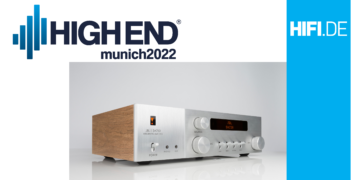| HIFI-FORUM » English » Surround (Engl.) » What is impedance and ohms? | |
|
|
||||
What is impedance and ohms?+A -A |
||
| Autor |
| |
|
SUNILYO
Stammgast |
#1
erstellt: 03. Jul 2006, 13:55

|
|
|
Hi all Every now and then i come across terms 'Impedance' and 'ohms'. What are they? and how are they important? Secondly can i attach a speaker whose maximum output is 150 RMS @ 8 ohms with a reciever that delivers 130/W per channel @ 6 ohms. Will the mismatch cause any kind of sound degradation, distortion or damage to the speaker or reciever. thanks |
||
|
kspv
Ist häufiger hier |
#2
erstellt: 03. Jul 2006, 18:12

|
|
|
Sunil, I suggest you do some reading. There are beautiful websites on the net to help the starters. For example, you may go through the contents, and the links supplied thereof, of the following website.  http://www.epanorama.net/links/audiohifi.html http://www.epanorama.net/links/audiohifi.htmlHere is a WhatHifi article about impedence:  http://www.whathifi....D=34&newssectionID=3 http://www.whathifi....D=34&newssectionID=3The website of Goodsound also carries the "Goodsound Guide", to help you understand the fundamentals. The answer to the second part of your question is, the set up you described is quite O.K., and is not going to damage your speakers or amplifier. |
||
|
|
||
|
Amp_Nut
Inventar |
#3
erstellt: 04. Jul 2006, 14:49

|
|
A Higher Impedance speaker ( or Any Higher Impedance Load ) draws LESS current than a lower impedance load. Hence if your amp is Comfortable / specified to drive a 6 ohm load, it will More Comfortably drive an 8 Ohm load. Only it will deliver a slightly lower power into the 8 ohm load than into the 6 Ohm load. However dont worry about the lower power... 130 watts into 6 Ohms translates into 97 Watts into 8 Ohms.... generally more than enough for most applications.. |
||
|
Amp_Nut
Inventar |
#4
erstellt: 05. Jul 2006, 06:00

|
|
The most Basic & Important Rule in Electrical & Electronic circuits is OHMS LAW. It simply states that an Electrical Voltage ( or Pressure ) applied accross a Resistor = The current flowing thru the resistor Multiplied by the Resistance of the resistor or V= IxR AN ANALOGY To get a better feel for this, consider Water ( ie Current ) flowing thru a Pipe ( The resistor) The Difference in Water Pressure accross 2 ends of the pipe = The rate of water flowing thru the pipe, Multiplied by the Resistance of the pipe to the flow of water. A thin pipe will have a Higher Resistance than a Fat pipe. Also a longer pipe will have a higher resistance than a similar diameter shorter pipe. That is RESISTANCE. Similarly, a Speaker presents Resistance ( or Impedance ... will come to that later ) to current being push into it, by the amplifier. Higher the resistance of the speaker, the less current it will accept, given a fixed Voltage accross it. IMPEDANCE Now suppose the pipe was not a metal pipe, but made of soft rubber, like a baloon. As water flows into the baloon, the baloon Expands, and does not build up proportionate pressure accross the 2 ends of the Baloon pipe. Ofcourse as the baloon fills up, the water pressure across the baloon will also build up, but there is a TIME LAG BETWEEN THE FLOW OF WATER AND THE PRESSURE BUILD UP, in a baloon pipe, unlike a normal pipe.. The baloon pipe is like an Impedance. RESISTANCE & IMPEDANCE Resistance & Impedance are EXACTLY THE SAME for Direct Current (DC). They are different ONLY for AC. ALL MUSIC SIGNALS ARE AC ! If I have not already lost you, and you have any queries, let me know.... Cheers |
||
|
SUNILYO
Stammgast |
#5
erstellt: 06. Jul 2006, 04:47

|
|
|
Thanks Amp nut That indeed was very informative. Now i understand better the concept of ohms. Just one more i would request. You have already given me the formula but if you could tell how you calculated 97 watts into 8 ohms from 130 watts into 6 ohms as this will help me in choosing the right kind of speakers. Does it vary from brand to brand or they all follow the same rule (which i guess they do). |
||
|
abhi.pani
Inventar |
#6
erstellt: 06. Jul 2006, 05:25

|
|
|
Buddy Sunil, For a HT, this kind of precise matching is not so relevant. All thats relevant is whether you like the sound, the effect etc... Mostly non of the commercial AVRs have the specs right, all those wattage specs are actually blown up to attract consumers. I would be surprised if these AVRs (Yamaha, Denon, Onkyo etc) rated at 130 rms watts per channel can actually deliver more than 50 watts per channel. So basically you can go ahead with any speaker that can handle more than 40 Watts RMS. All you have to actually see is the tonality of the speakers and its voicing when matched to a particular AVR. Not to mention that Center and front channels should be from the same family of speakers. |
||
|
Amp_Nut
Inventar |
#7
erstellt: 06. Jul 2006, 08:29

|
|
|
There are 3 formulae for power : Power (P) = Voltage (V) x Current (I) or P= VxV Divide By R Or P = IxIxR Actually, the second and 3rd Formulae are the first, with either V or I substituted ( from Ohms law) in terms of other variables. Now the calculation: You said your Amplifier was rated as 130 Watts into 6 Ohms. Using P= VxV / R 130 = VxV /6 130x6 = VxV or V = 27.9 Volts If this same voltage was applied across an 8 ohm speaker, P = 27.9 x 27.9 / 8 P= 97.499 Watts. Note: A 8 ohm speaker will draw LESS current than a 6 Ohm speaker ( ie a lighter load ). Hence you can Assume that the Voltage it creates accross a 6 Ohm speaker will also be created accross an 8 Ohm speaker. You CANT ass-u-me  that the 6 ohm voltage will be supported accross a 4 Ohm speaker. that the 6 ohm voltage will be supported accross a 4 Ohm speaker.Even the Krell Integrated Amp cant do that !  |
||
|
SUNILYO
Stammgast |
#8
erstellt: 06. Jul 2006, 09:20

|
|
|
Thanks Amp_nut P and R is clear to me. But V part isnt. I mean how did you come to know that it was 27.9 and not something else. did you calculate that also ???. |
||
|
SUNILYO
Stammgast |
#9
erstellt: 06. Jul 2006, 09:23

|
|
|
Hey Amp Nut sorry for the previous post. i got it. Just missed that part where you have calculated V also. Thanks Amp |
||
| ||
|
|
||||
| Das könnte Dich auch interessieren: |
|
Short Term & Long Term Power in Speakers SUNILYO am 07.07.2006 – Letzte Antwort am 17.07.2006 – 17 Beiträge |
|
impedance? anirvan am 24.06.2005 – Letzte Antwort am 25.06.2005 – 3 Beiträge |
|
What are Dipole & bipole speakers SUNILYO am 24.07.2006 – Letzte Antwort am 08.08.2006 – 11 Beiträge |
|
Suggest a HT Sys w/ Amp and 5.1 (INDIA) kush251188 am 11.07.2010 – Letzte Antwort am 12.07.2010 – 2 Beiträge |
|
4 ohms speaker with yamaha 450 pranab31 am 22.03.2006 – Letzte Antwort am 23.03.2006 – 2 Beiträge |
|
Hope this is in the right section???????? WGFA am 24.11.2003 – Letzte Antwort am 24.11.2003 – 3 Beiträge |
|
HTPC and power amplifier praful am 02.03.2006 – Letzte Antwort am 18.03.2006 – 2 Beiträge |
|
Buying Hi End in Germany spiderv6 am 01.07.2003 – Letzte Antwort am 04.07.2003 – 3 Beiträge |
|
A novice wanting some advice HIFIdummy am 10.11.2004 – Letzte Antwort am 10.01.2005 – 5 Beiträge |
|
SPEAKERS FOR RECEIVER Anandjacob am 09.07.2005 – Letzte Antwort am 19.07.2005 – 17 Beiträge |
Foren Archiv
2006
Anzeige
Produkte in diesem Thread

Aktuelle Aktion
Top 10 Threads der letzten 7 Tage

- Hotel Modus deaktivieren
- "diese anwendung wird jetzt neu gestartet um mehr speicherplatz verfügbar zu machen"
- Von HD+ zurück zu Standard-TV
- Remotekabel anschließen, aber wie und wo?
- Hisense verbindet sich nicht mehr mit dem WLAN
- Audiodeskription ausschalten (in ZDF App) 803er
- Umschalten von TV auf Radio
- Satellitenschüssel was und wie einstellen am TV
- Pro 7 und Sat 1 auf einmal weg.
- Markierung an Lautsprecherkabel - welche Norm?
Top 10 Threads der letzten 50 Tage

- Hotel Modus deaktivieren
- "diese anwendung wird jetzt neu gestartet um mehr speicherplatz verfügbar zu machen"
- Von HD+ zurück zu Standard-TV
- Remotekabel anschließen, aber wie und wo?
- Hisense verbindet sich nicht mehr mit dem WLAN
- Audiodeskription ausschalten (in ZDF App) 803er
- Umschalten von TV auf Radio
- Satellitenschüssel was und wie einstellen am TV
- Pro 7 und Sat 1 auf einmal weg.
- Markierung an Lautsprecherkabel - welche Norm?
Top 10 Suchanfragen

Forumsstatistik

- Registrierte Mitglieder930.678 ( Heute: 1 )
- Neuestes Mitgliedcelsa07n4297080
- Gesamtzahl an Themen1.563.481
- Gesamtzahl an Beiträgen21.826.650











